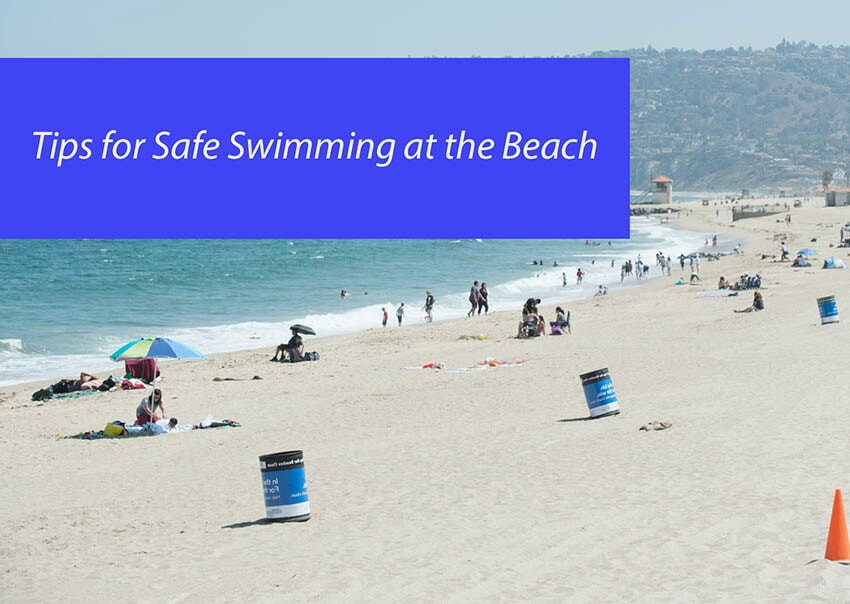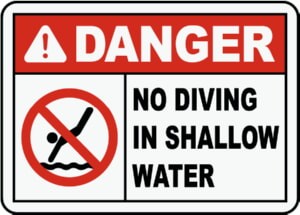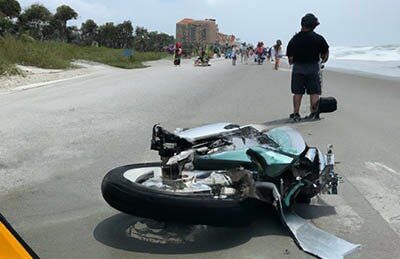Tips for Safe Swimming at the Beach
Swimming in the ocean can be a great way to cool off during a hot summer day, but it is essential to prioritize safety at the beach. Beachgoers should always remember that the ocean is an unpredictable and powerful force that can quickly become dangerous. Therefore, it is crucial to be aware of the potential hazards and take the necessary precautions to ensure a safe and enjoyable beach experience. This article will provide tips for safe swimming at the beach, including identifying potential hazards, following beach rules, and knowing how to respond in an emergency.

Identify Potential Hazards
Beachgoers should know signs indicating dangerous conditions, such as rip currents or jellyfish warnings. Rip currents are powerful, narrow channels of fast-moving water that can pull swimmers away from the shore. These currents can be difficult to spot from the coast, and if caught in one, it can be challenging to swim back to the beach. If caught in a rip current, the best thing to do is to remain calm, conserve energy, and swim parallel to the shore until you are out of the current's pull.
Another potential hazard at the beach is jellyfish. These marine creatures have long tentacles that can deliver painful stings. If you encounter a jellyfish, it is best to avoid it and notify a lifeguard immediately. If you get stung, rinse the affected area with vinegar or salt water, remove any tentacles with tweezers, and seek medical attention if necessary.
Follow Beach Rules
Beaches have specific rules and regulations that are designed to keep swimmers safe. Reading and following these rules is essential to ensure a safe and enjoyable beach experience. Some common beach rules include:
- No diving in shallow water: Diving into shallow water can cause severe head or neck injuries. Therefore, it is crucial to avoid diving in areas where the water is less than nine feet deep.

- No alcohol or drug use: Alcohol and drugs can impair judgment and increase the risk of accidents in the water. Avoid using these substances while swimming.
- No running on the beach: Running on the beach can cause slips, trips, and falls, leading to injuries. Instead, walk carefully on the sand.
- Swim near a lifeguard: Lifeguards are trained to identify potential hazards and respond to emergencies.
Knowing How to Respond in Case of an Emergency
If you see someone in distress in the water, notify a lifeguard immediately. Call 911 or your local emergency number if there is no lifeguard present. Remember that swimming out to rescue someone can put you in danger, so it is best to wait for trained professionals to handle the situation.
If you or someone else is experiencing difficulty in the water, remember the following tips:
- Remain calm:Panicking can cause exhaustion and make it harder to swim.
- Float or tread water: If you are tired, floating or treading water can help conserve energy.
- Signal for help: Wave your arms and shout for help to attract attention.
- Use a flotation device: If you have a flotation device like a life jacket, use it to help you stay afloat and conserve energy while waiting for help.
It is important to note that safety at the beach applies not only to swimming but also to other activities. For instance, riding a motorcycle to the beach may seem fun but it comes with risks. In a motorcycle accident in Cocoa Beach, it is vital to contact a Cocoa Beach motorcycle accident attorney.

They can help you navigate the legal process, determine fault, and negotiate with insurance companies to ensure you receive fair compensation for any injuries or damages sustained.
6 Tips to Get Comfortable Swimming in Open Water
Conclusion
Swimming at the beach can be an enjoyable experience. Still, it is essential to prioritize safety. By identifying potential hazards, following beach rules, and knowing how to respond in an emergency, you can help ensure a safe and enjoyable beach experience. Wear sunscreen, swim near a lifeguard, and avoid diving in shallow water. By taking these precautions, you can enjoy all the ocean has to offer while staying safe in the water.